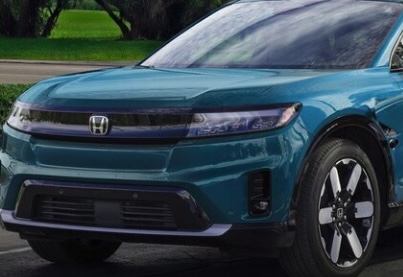Trade Deal Lowers Japan Auto Tariffs Below Mexico, Canada
By Reuters | 22 Jul, 2025
The agreement would favor imports from Japan over those of US companies assembling vehicles in Mexico and Canada.
The United States and Japan struck a deal to lower the hefty tariffs President Donald Trump threatened to impose on goods from its Asian ally that included a pledge by Japan to invest $550 billion in the United States.
The agreement - including a 15% tariff on all imported Japanese goods, down from a proposed 25% - is the most significant of the string of trade deals the White House has reached ahead of an approaching August 1 deadline for higher levies to kick in.
“I just signed the largest TRADE DEAL in history with Japan,” Trump said on his Truth Social platform. "This is a very exciting time for the United States of America, and especially for the fact that we will continue to always have a great relationship with the Country of Japan."
Ishiba, who is facing political pressure after a bruising election defeat on Sunday, hailed the deal as "the lowest figure among countries that have a trade surplus with the U.S.".
The two sides also agreed to cut tariff 25% tariffs already imposed on Japanese autos to 15%, Ishiba said. Auto exports account for more than a quarter of Japan's exports to the U.S.
The announcement ignited a rally in Japanese stocks, with the benchmark Nikkei climbing 2.6% to its highest in a year. Shares of automakers surged in particular, with Toyota up more than 11%, and Honda and Nissan both up more than 8%.
The exuberance extended to shares of South Korean carmakers as well, as the Japan deal stoked optimism that South Korea could strike a comparable deal. The yen firmed slightly against the dollar, and U.S. equity index futures edged upward.
But U.S. automakers signaled their unhappiness with the deal, raising concerns about a trade regime that could cut tariffs on auto imports from Japan to 15% while leaving tariffs on imports from Canada and Mexico at 25%.
Matt Blunt, who heads the American Automotive Policy Council which represents General Motors Ford and Chrysler-parent Stellantis, said "any deal that charges a lower tariff for Japanese imports with virtually no U.S. content than the tariff imposed on North American-built vehicles with high U.S. content is a bad deal for U.S. industry and U.S. auto workers."
'MISSION COMPLETE'
Autos are a huge part of U.S.-Japan trade, but almost all of it is one way to the U.S. from Japan, a fact that has long irked Trump. In 2024, the U.S. imported more than $55 billion of vehicles and automotive parts while just over $2 billion were sold into the Japanese market from the U.S.
Two-way trade between the two countries totaled nearly $230 billion in 2024, with Japan running a trade surplus of nearly $70 billion. Japan is the fifth-largest U.S. trading partner in goods, U.S. Census Bureau data show.
Trump's announcement followed a meeting with Japan's top tariff negotiator, Ryosei Akazawa, at the White House on Tuesday.
"#Mission Complete," Akazawa wrote on X.
The deal was "a better outcome" for Japan than it potentially could have been, given Trump's earlier unilateral tariff threats, said Kristina Clifton, a senior economist at the Commonwealth Bank of Australia in Sydney.
"Steel, aluminium, and also cars are important exports for Japan, so it'll be interesting to see if there's any specific carve-outs for those," Clifton said.
Kazutaka Maeda, an economist at Meiji Yasuda Research Institute, said that "with the 15% tariff rate, I expect the Japanese economy to avoid recession."
Japan is the largest investor in the United States. Together with pension giant GPIF and Japanese insurers, the country has about $2 trillion invested in U.S. markets.
Besides that, Bank of Japan data shows direct Japanese investment in the United States was $1.2 trillion at the end of 2024, and Japanese direct investment flows amounted to $137 billion in North America last year.
Speaking later at the White House, Trump also expressed fresh optimism that Japan would form a joint venture with Washington to support a gas pipeline in Alaska long sought by his administration.
"We concluded the one deal ... and now we're going to conclude another one because they're forming a joint venture with us at, in Alaska, as you know, for the LNG," Trump told lawmakers at the White House. "They're all set to make that deal now."
Trump aides are feverishly working to close trade deals ahead of an August 1 deadline that Trump has repeatedly pushed back under pressure from markets and intense lobbying by industry. By that date, countries are set to face steep new tariffs beyond those Trump has already imposed since taking office in January.
Trump has announced framework agreements with Britain, Vietnam, Indonesia and paused a tit-for-tat tariff battle with China, though details are still to be worked out with all of those countries.
At the White House, Trump said negotiators from the European Union would be in Washington on Wednesday.
(Reporting by Trevor Hunnicutt, Jasper Ward and Mariko Katsumura. Additional reporting by Andrea Shalal, David Shepardson and Vidya Ranganathan; Writing by James Oliphant; Editing by Lincoln Feast.)

Asian American Success Stories
- The 130 Most Inspiring Asian Americans of All Time
- 12 Most Brilliant Asian Americans
- Greatest Asian American War Heroes
- Asian American Digital Pioneers
- New Asian American Imagemakers
- Asian American Innovators
- The 20 Most Inspiring Asian Sports Stars
- 5 Most Daring Asian Americans
- Surprising Superstars
- TV’s Hottest Asians
- 100 Greatest Asian American Entrepreneurs
- Asian American Wonder Women
- Greatest Asian American Rags-to-Riches Stories
- Notable Asian American Professionals

